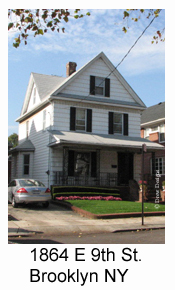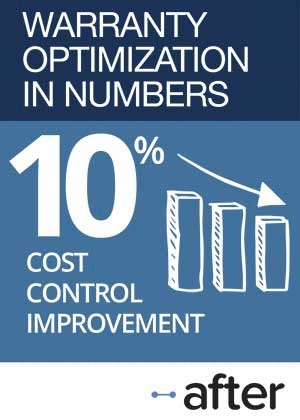Home Warranty Scam?
There are good extended warranty companies and there are bad extended warranty companies. One of the worst seems to have a policy of denying all claims over $100 for what at first seem like legitimate reasons, and then hiding from the angry mob behind the anonymity of its web site, toll-free number, and post office box.
Home warranties, and extended warranties in general, can be an efficient way to protect against unexpected future repair costs. Properly priced and transparently managed, a service contracts can, like auto insurance, health insurance or flood insurance, allow a consumer to reduce the financial impact of an unlikely event by purchasing a guarantee against loss or harm.
Every year around this time, newspaper reporters ask Warranty Week if consumers should buy extended warranties. The answer, they're always told, is somewhere between "always" and "never," depending upon how the consumer answers two key questions. First, is the price of the service contract in line with the price of the product and the risk/cost of having to get it repaired? Second, is the business that's selling the contract likely to pay for that repair?
We'll dive deeper into the first question in the weeks ahead. This week, we'll begin to answer the second question by spotlighting a company whose business practices are so deceptive that it's already been run out of two large U.S. states. Its road to success seems to be paved by a policy that makes it nearly impossible for consumers to collect on a claim over $100. And then after denying those claims for seemingly legitimate reasons, the company hides behind its anonymity to evade its pursuers.
The extended warranty's price is only relevant if the contract isn't worthless. In other words, in the long run it really doesn't matter whether the price of the service contract is expensive or a bargain if the company has set itself up to almost never pay claims. It doesn't matter whether they're insuring handballs or heart monitors if they're tilting the game at the back end.
Where Are They From?
Fortunately, there are some telltale signs a prospective customer can use to decide whether a given company is legitimate or not. First, ask them where they are based, and who owns or runs the company. It sounds like such a dumb question until you see the pattern the scammers use, where they hide behind post office boxes, toll-free numbers, and anonymous Web site registrations to frustrate their victims.
Ask yourself a simple question: would I buy health insurance from these guys? Would I expect them to pay my legitimate medical expenses if they won't even tell me their Zip Code? Would a collision policy from Joe's Car Wash and Auto Insurance Corp. be worth anything after an auto accident? Are they likely to still be in business in two or three more years? If not, it's not a bargain at any price.
Second, ask them if they're members of anything. A good place to start is to ask them if they're members of their local Better Business Bureau. Using that information, check out their rating online at the BBB's business review web page at www.bbb.org. Also ask them if their administrator or underwriter are members of a national group such as the Service Contract Industry Association or perhaps an industry-specific group such as the Vehicle Protection Association or a regional group such as the Home Warranty Association of California. If they're not the joiner type, there's probably a very good reason.
We would add a third suggestion -- to look at the terms and conditions of the actual service contract -- but for a non-lawyer with no expertise in contract law, this exercise might be pointless. However, if the seller flat-out refuses to allow this to happen, that might be a telltale sign all by itself. With a product warranty, there's a federal law requiring the seller to make the terms and conditions available for examination before the sale. Although there's no law for that when it comes to an extended warranty, most legitimate sellers will allow it.
We might also add a fourth suggestion to do some online research before signing the contract, but so much of what passes for warranty-related advice on the World Wide Web these days is suspect. Both positive and negative reviews can be manufactured and manipulated by competitors, and allegedly unbiased suggestions that steer business towards a preferred company can be purchased and posted. However, we note with some irony that it was the sheer volume of hateful and negative online reviews that led us to this week's subject. And of course, you're reading all about it in an online newsletter.
World's Worst Warranty Company?
The subject of this week's newsletter is a company called Nationwide Home Warranty, and it's unlike most other home warranty companies in at least two ways. First, it's based in New York City, an area of the country where the market penetration of home warranties is towards the low end of the scale, and second, it's garnered a critical mass of reviews, commentary, and customer satisfaction ratings that are about as low on the scale as possible.
Let's put it this way: If there were emoticons for pitchforks and torches, some of this company's reviewers would have used them liberally. Sure, every home warranty company has some disgruntled customers, but this company's customer base seems more like an angry mob. The opening comment about Nationwide on the Home Warranty Reviews web site contains just two words: "horrible service." The most recent comment (filed just this morning) ended with the sentence "I hope the Attorney General [in New York] shuts them down for fraud!"
In between, most of the more than 300 complainants told a similar tale in which they called in a claim, and then they paid $60 to the independent service technician who responded. This was in addition to the monthly or annual premium they paid directly to Nationwide for the home warranty.
So far, so good. That's how home warranties work. Depending upon the company and the location, the annual premium can be anywhere from $200 to $600, and the fee for housecalls can be anywhere from $30 to $100. But unlike most of the legitimate home warranty companies, Nationwide's policy was to find grounds to deny all large claims.
Several customers said the service technicians told them flat out that company policy allowed for any repair work which could be done for less than $100 to be done immediately, no questions asked. However, they also said they were told to call in for an authorization from Nationwide if the job was going to cost more than $100. And of course, that authorization never comes immediately. So the consumer can choose either to pay out of pocket and take their chances by later petitioning Nationwide for a reimbursement, or they can wait a few days for the claim to wind its way through the system towards approval.
Instead, what they usually received after a few days was a denial of their claim. Some were told the failure was caused by a pre-existing condition, or that the unit exhibited signs of a previous repair. Others were told the unit was rusted or corroded, which is grounds for a denial of the claim. And those who persisted were asked for copies of all their maintenance or service records, which of course they didn't have, because who asks a repairman to stop by and fill out a service report on their perfectly functional appliances? Without service records -- you guessed it, the claim was denied. Those who did somehow have service records were asked to submit copies of them, and then they never again heard from the company.
Meanwhile, some of the most stubborn customers sat for weeks in the summer heat without an air conditioner, waiting for a repair that never happened. Pools turned green for the lack of a functioning filter, as did the food in the broken refrigerators. At some point, all but the most gullible customers realized that they weren't going to get any satisfaction through Nationwide, and then they got angry and started complaining. Sadly, we contacted a sampling of nine of the complainants this week to see if there's been any progress, and months or even years later, not one of them has reported any payments or settlements.
Naughty Boys
The Better Business Bureau of Metropolitan New York Inc. has collected a total of 265 complaints against Nationwide, and gives it an overall unsatisfactory record. In a nutshell, the BBB says "consumers are dissatisfied with the home warranty service for which they have paid and are unable to speak with the company's representatives by phone to resolve claim issues. Consumers claim that Nationwide Home Warranty requires three years of maintenance records for appliances, often making consumer claims invalid. Consumers also allege that even valid claims are not dealt with by the company in a timely manner often resulting in failure to receive payment or service."
The web site Consumer Affairs has nine pages of complaints that more or less follow the same claims settlement pattern: deny, deny, deny. One of the numerous complaints on the web site my3cents.com is entitled, "Stay away from these people." Several of the entries on the Ripoff Report use the words scam and fraud repeatedly. Some are written in all capital letters, and several use multiple exclamation points.
So we decided that before we begin researching the home warranty industry in earnest, perhaps we should find out more about what could be the world's worst warranty company. However, Nationwide Home Warranty is allegedly based in a post office box on Canal Street in New York City. Space is a little tight in that little box, even by New York City standards. Its web site lists the address as P.O. Box 341, New York NY 10013, with a phone number of 1 (888) 500-2110 and a fax number of 1 (718) 943-6924. We list the latter only because (718) is not the area code that's normally available in the Canal Street or Tribeca neighborhoods of New York City covered by that Zip Code.
Nationwide Not On Your Side?
By the way, the company in question has absolutely no link to the Nationwide Mutual Insurance Company, although at least one home warranty buyer told Warranty Week that they thought they were doing business with the dependable "man from Nationwide."
So far this year, Nationwide Home Warranty has been ordered to cease selling home warranties in both Florida and California, after investigations launched by the respective insurance regulators of those states found they were doing business without the proper licenses. In May, the California Department of Insurance issued a press release entitled "Commissioner Poizner Warns Consumers About Home Warranty Scams," in which the California Insurance Commissioner warned, "There are unlicensed home warranty companies in the market scamming honest customers."
The release went on to say that the department initiated an investigation into Nationwide Home Warranty's sales practices in September 2008. "Consumers complained that Nationwide Home Warranty either failed to adequately pay for their home repairs or unjustly denied their claims," it alleged. That resulted in an order to cease and desist issued on March 3, 2009.
So while the department never overtly said Nationwide was a scam, one could draw that inference by reading between the lines. Officially, the ejection was caused by the lack of a proper license. Unofficially, companies like that are "scamming honest customers." There were no other companies named in the release, so draw your own conclusions.
More to the Story?
Investigators in Florida were a bit more circumspect. Their press release said the department investigated Nationwide's "marketing and claims handling practices, and has determined that it has sold and continues to sell home warranty products in Florida without a license via its Web site." The release also quoted Florida Insurance Commissioner Kevin McCarty as saying that the company was "brazenly selling these products" in his state and was thereby "preying on Florida consumers."
Florida's cease and desist order, however, never alleged that the company was unjustly denying legitimate claims, and never used the word scam. All it said was that two separate Florida residents named Cynthia Matthews-Hamad and William Mars purchased home warranty policies from Nationwide Home Warranty, that both had made claims that were either denied or ignored, and that the department had found the company was not properly licensed to sell home warranty policies in Florida.
We asked the investigators in the Florida Office of Insurance Regulation whether there was more to the story than simply the lack of a proper license -- did it have more to do with the way the company seemed to always find grounds to deny all claims over $100? The investigators said they couldn't elaborate, first because the case was still considered to be active and open, and second because the 21-day opportunity for the company to respond to the order wouldn't officially expire until today, November 5.
Downtown Manhattan Offices?
Florida's cease and desist order also lists an additional address of 100 Church Street, New York NY 10007, but that turns out to be just another mailing address, a Private Mail Box number 1003 located on the eighth floor of the building. Someone from Nationwide comes by once a week to pick up the mail, we were told.
So we decided to ask the company where it was located. When reached by phone, a gentleman by the name of Brian Cooper, who said he is Nationwide's claims regional manager, also provided the 100 Church Street address to Warranty Week. When he was told that it was just a rented mailing address, and was not the location of the company or its call center, he said, "Sir, that's all the information that I can give you. Is there anything else you need?"
Actually, yes there is. When asked about the cease and desist order in Florida, he confirmed that "yes, we stopped servicing that area." When asked about California's cease and desist order, all Cooper said is that the matter had been settled.
"California came to an agreement with Nationwide," he said. "Customers have complaints on claims. That's the nature of having a warranty. Not every claim is going to be covered. But after dealing with California, and after dealing with every customer that we have in the California area -- all customers will be serviced -- then we have stopped servicing the California area." And that was that.
But that's the problem. One can legitimately deny claims because of rust, or because of an alleged failure to maintain the unit properly, as long as those conditions are made plain in the contract signed by the consumer. One can void a policy for an unauthorized repair or a pre-existing condition. One can void a policy for failure to report damage in a timely manner. That's not fraud. All an investigator can do is disagree with the claims adjuster's opinion. And all a given state's department of insurance can do is run them out of town for not having a license. Nobody, it seems, can make them pay claims they denied for seemingly legitimate reasons, no matter how suspicious the pattern.
Asking for a Second Opinion
Cooper was asked whether John Ryan or James Porter, who have been named as owners or executives with Nationwide, were available to discuss the reasons behind all the denied claims. His answer was, "Sir, I'm sorry. I'd love to help you with your story, but I have to tend to customers. I don't have time to answer all these questions. Good luck with your article."
Ironically, the Church Street address is just a few blocks away from the School of Risk Management, Insurance and Actuarial Science, formerly known as the College of Insurance. It's also just a few blocks from City Hall, and is not far from the NYC Department of Consumer Affairs. Even the New York State Attorney General has an office within six blocks of 100 Church Street.
Actually, one of the nine complainants we contacted for follow-up said she had heard that Nationwide was doing business out of a house in Brooklyn, New York, several miles southeast of the Tribeca and Chinatown addresses we'd heard about. The company's real address, she said, was 1864 East 9th Street, which would put it in the Sheepshead Bay neighborhood of Brooklyn. And that would explain the (718) fax number, wouldn't it?
According to a listing on homes.com, the house in question is a single-family residence built in 1920, with 1,960 square feet of interior space on a 4,000 square foot lot. The accompanying map pointed out that it's not far from the intersection of Ocean Parkway and Kings Highway, in the middle of the section of East 9th Street between Avenue R and Avenue S. That's only half an hour's drive away from Warranty Week.
Nobody Home

So we decided to make a surprise visit. When our reporter and photographer approached the home just before lunch on a weekday, there was a silver 2003 Honda parked in the driveway, but nobody answered the door. There was also what looked to be a side entrance to a ground-level apartment on the north side of the house, but nobody answered that door either.
There was no name on the mailbox and none on the doorbell. During the lunch hour, nobody entered or exited the house. Neighbors said they didn't know the residents and they had no knowledge of any business operating from the premises, let alone a home warranty company. This rumor wasn't checking out. If there was a call center operating inside, its employees apparently weren't taking advantage of several additional off-street parking spaces in the driveway (on a city block where all the street parking was taken), nor were they making any noise or taking any smoking breaks.
Another of the nine complainants said Nationwide had recently changed its name to Champion Home Warranty and had crossed the border into New Jersey. But Brooklyn is a lot closer than New Jersey, so we decided to track down this rumor from behind a desk. And while we got people from both companies to categorically deny they'd ever heard of the other company, the coincidences seem to suggest otherwise.
For starters, they seem to share the same web designer. For instance, Nationwide's web site designer thought it important enough to explain some of the issues surrounding 13 SEER air conditioners on a separate page. Champion's also did so, and used almost the same language on their 13 SEER page.
Nationwide's terms and conditions page seems to be functionally identical to Champion's terms and conditions page, except the latter's page seems to have undergone a global search and replace operation and a spell check. For instance:
Nationwide's T&C:
5.2.1. Nationwide Service Call Fee. Each time a Nationwide Service Technician is scheduled and dispatched to Your home, You will be required to pay the Nationwide Service Call Fee in the amount of Sixty ($60.00) Dollars, or the actual cost of repair and/or replacement, whichever is less. You will be required to pay the Nationwide Service Call Fee regardless of whether all or part of the claim is granted, excluded, limited or denied by Nationwide. You will be required to pay the Nationwide Service Call Fee once the Nationwide Service Technician begins traveling to your home, regardless of whether you are able to provide access to your home for the Nationwide Service Technician or if you cancel the appointment while the Nationwide Service Technician is traveling to your home.
Champion's T&C:
6.II.i. Champion Home Warranty Service Call Fee. You will be required to pay the Champion Home Warranty Service Call Fee in the amount of Sixty Dollars ($60.00), or the actual cost of repair and/or replacement, whichever is less, each time a Champion Home Warranty Service Technician is scheduled and dispatched to Your home. You will be required to pay the Champion Home Warranty Service Call Fee, regardless of whether or not all or part of the claim is granted, excluded, limited or denied by Champion Home Warranty. You will be required to pay the Champion Home Warranty Service Call Fee once the Champion Home Warranty Service Technician begins traveling to Your home, regardless of whether You are able to provide access to Your home for the Champion Home Warranty Service Technician, or if You cancel the appointment while the Champion Home Warranty Service Technician is traveling to Your home.
In another section, Nationwide's misspelling of the word "ruff" was corrected by Champion to "rough." In both documents, however, the brand names Masonite and Cernwood Shakes were left in lower case. What makes this curious is an almost Germanic tendency elsewhere in the T&C to capitalize all the nouns, whether they needed it or not.
At the end of the terms and conditions page, Nationwide states that any disputes will be subject to the laws of the state of New York, and will be under the jurisdiction of the courts of Kings County (also known as the borough of Brooklyn). Champion's disputes, meanwhile, will be settled under the laws of the state of New Jersey, under the jurisdiction of the courts of Morris County (the location of the township of Parsippany).
Additional Coincidences
In the "testimonials" sections of the Web sites, the names seem to have been changed but the wording is more or less the same. For instance:
Nationwide:
"I purchased a Home warranty and my salesman was Kevin Moore. He was very helpful. I had trouble receiving an email copy of warranty and I called and he worked very hard with me and faxed a copy to a local office so I could pick up the copy and have it to give to the buyers our home before we left. Just wanted his supervisor to know how helpful and courteous he was." --Fran T.
Champion:
"I purchased a Home warranty and my salesman was Johnson Reid. He was very helpful. I had trouble receiving an email copy of warranty and I called and he worked very hard with me and faxed a copy to a local office so I could pick up the copy and have it to give to the buyers our home before we left. Just wanted his supervisor to know how helpful and courteous he was." --Terry
Notice the same two grammatical errors in each (the missing article "the" in front of the word warranty and the missing preposition "of" in front of the phrase our home). Also, sorry to appear pedantic, but notice the curious capitalization of the word Home in both.
Coincidentally, helpful employees named Matt apparently work at each company. Says the Nationwide page: "Matt did a great job. I am a Realtor and I will recommend this to all my buyers and friends." --Elaine D., Broker/Sales Director. Says Champion: "Matt did a great job. I am a Realtor and I will recommend this to all my buyers and friends." --Derrick F.
Other helpful employees mentioned in the Nationwide testimonials include Brian Cooper of customer service, John Ryan, and someone named Chris. Employees named in the corresponding Champion testimonials include Anderson James of customer service, Johnson Reid of sales, and a "Mr. Samantha Clark." Oops, the spell checker doesn't verify gender.
No Curiosity At All?
So we asked Nationwide claims manager Brian Cooper what he thought of all these incredible coincidences. Specifically, we asked him whether Nationwide was linked or affiliated or somehow related to Champion Home Warranty of Parsippany, New Jersey. "We're not affiliated with any other company," was his blunt answer. When alerted to the incredible similarity of the company's contracts and testimonials, Cooper said, "A lot of companies seem similar -- the names are similar and the policies look very similar -- but we have no affiliation with any other company."
Interestingly, he did not ask for any further information about Champion or their alleged plagiarism. Put yourself in the same position for a second. If someone told you about a plagiaristic web site that mirrored your own in every way but the name, wouldn't you at least ask for its address? Would your first and last impulse be to simply deny an affiliation? Let's give Mr. Cooper the benefit of the doubt that he's the victim of a plagiarist: Doesn't he care that someone from New Jersey is apparently ripping off his company's intellectual property word for word?
We also had no success looking at the domain name registrations for duplications. However, both nationwidehomewarranty.com and championhomewarranty.com were registered at GoDaddy.com Inc. by a company called Domains by Proxy Inc., which exists specifically to shield Web site registrants from being publicly identified. "We believe you should be able to keep your personal information private when you register a domain -- and now you can, by switching your "public" registration to a "private" one, using our patented private registration process," the company states in its online brochures. "Your identity is nobody�s business but ours."
Crossing the River?
Warranty Week called Domains by Proxy, explained our quest, and asked whether the web site domain names were registered by the same people. We outlined some of the similarities between nationwidehomewarranty.com and championhomewarranty.com, and also detailed some of the complaints lodged against Nationwide by hundreds of consumers, as well as the specific enforcement actions taken against the company in California and Florida. Could Nationwide and Champion be one and the same?
Because of company policy, the Domains by Proxy call center agent we spoke with declined to identify the registrants behind either nationwidehomewarranty.com or championhomewarranty.com, but he did suggest we write an email to pr@secureserver.net. We did so, and this morning we received a written reply from Domains by Proxy manager Lisa Villeneuve:
"Domains By Proxy takes its privacy service very seriously. We do not tolerate anyone breaking our terms of service. If someone is discovered violating our terms, we will remove the service after an investigation is completed.
"When a complaint is filed through an Attorney General or the Better Business Bureau, we let them know we are only a service provider and have no part in the Web site content. We then reach out to our customer and give them five days to contact the complainant.
"We ask the Better Business Bureau or the Attorney General to confirm our customer has contacted them. If no contact is made, the customer is in violation of our terms of service and we remove the Domains By Proxy service.
"In the case of the two companies you provided, we have not received any complaints from the Better Business Bureau or an Attorney General. Once a complaint is received from one of these agencies, we will open a formal investigation," Villeneuve wrote.
Evidently, no one has yet complained to Domains by Proxy. And that means not only have no consumers complained, but also that no state insurance officials, attorneys general, or consumer advocates have complained either. And, if one believes plagiarism to be a violation of the registrar's terms of service, nobody from either Nationwide or Champion has complained about the other's seemingly wholesale copying of their web site content.
So we called Champion Home Warranty at 1 (800) 220-5426, to ask them about the uncanny similarities between the two web sites. First, we asked "Todd," the call center agent who answered the phone, where the company was located. He said they were located in Parsippany, New Jersey, and have been for all of their 14 years in the business. Are they affiliated in any way with Nationwide Home Warranty? He said he'd never heard of that company. We detailed some of the similarities between the companies' web site content, and asked again if there was any connection? "Absolutely not, sir," was his definitive answer.
Then we asked to speak to Matt, who seemed to do such good work in the past for the realtors Elaine D. and Derrick F. "Todd" said he didn't know of any Matt who currently worked at the company, but he passed the phone to "Larry" just to make sure. And "Larry" verified that there was no Matt working at the company. Incredibly, he also said there was no Anderson James working in customer service, no Johnson Reid in sales, and neither a Mr. nor a Mrs. Samantha Clark working for Champion Home Warranty.
Epilogue: After we first published this report on the Nationwide Home Warranty scam last month, some angry ex-customers began to spread the news that they had discovered the company's real address to be 2711 Coney Island Avenue, Second Floor, Brooklyn NY 11235. They also reported that Champion Home Warranty was indeed sharing that office space with Nationwide, and that the home we photographed was owned by the in-laws of a top company executive.
So in late November we returned to the Flatlands of Brooklyn, where we found a pair of rough-looking "dem 'n' doze" types taking a smoking break outside the front door of the office building on Coney Island Avenue, which had no company name on it. They said they worked for a debt collection agency, but they couldn't remember the name of it. Then they went back in, carefully locking the door behind them.









